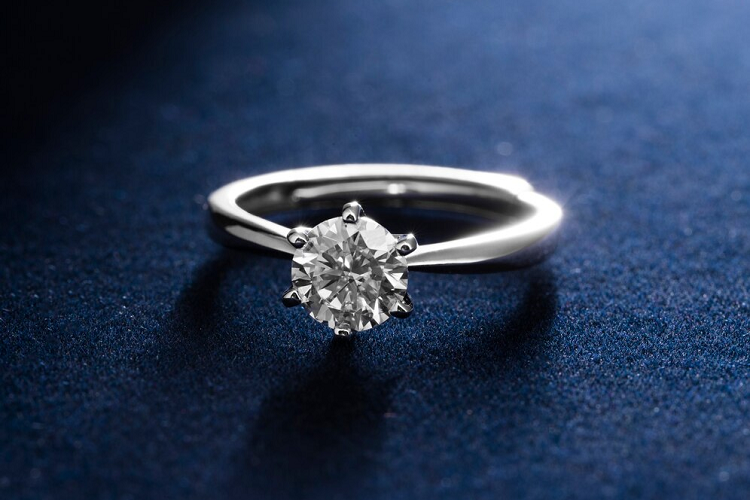In recent years, lab-grown diamond have surged in popularity, especially for engagement rings. These diamonds, identical in composition to their mined counterparts, offer a more sustainable and often more affordable option. Just like moissanite rings, these diamond options provide a great alternative to anyone working with a tight budget for their wedding without compromising on quality.

With the many jewelry options available in the market, you must conduct due diligence for the right choice of a diamond ring. There are different diamond varieties based on quality and design. Therefore, studying the options will give you a better chance of making the right choice for your engagement.
Things to Consider When Choosing a Lab Grown Diamond Engagement Ring
Lab-grown diamond engagement rings are an excellent choice for you and your loved one. Therefore, do not hesitate to go with it if this is your final resolution from the deliberations table. However, there are a few things to consider for a perfect choice. If you are considering a lab-grown diamond for your engagement ring, here are several key factors to remember.
1. Understanding Lab Grown Diamonds
First, it is essential to understand what lab-grown diamonds are. These diamonds created in controlled laboratory environments undergo advanced technological processes replicating natural diamond growing conditions. The result is a physical, chemically, and optically identical stone to a mined diamond.
2. The Four Cs
When selecting any diamond, it is crucial to consider and review the Four Cs: Cut, Color, Clarity, and Carat.
- Cut: This quality refers to how well the diamond has been shaped and faceted. A well-cut diamond will have superior brilliance and fire.
- Color: Lab-grown diamonds, like natural ones, can vary in color. The grading scale starts from D (colorless) to Z (light-color).
- Clarity: This assesses the presence of inclusions or imperfections in the diamond. Lab-grown diamonds can range from flawless to those with inclusions.
- Carat: Carat is the measure of a diamond’s weight. Balancing carat size with the other Cs is crucial to finding the best overall diamond for your budget.
3. Price Comparison
Generally, lab-grown diamonds are more affordable than their natural options. This price difference allows buyers to invest in a larger stone or allocate a budget to other aspects of the ring, like a unique setting or a custom design.
4. Environmental and Ethical Considerations
The reduced environmental impact is one of the most compelling reasons to choose a lab-grown diamond. Traditional diamond mining is resource-intensive and can lead to ecological damage. Lab-grown diamonds offer a more sustainable alternative. Additionally, they eliminate concerns about the ethical issues sometimes associated with diamond mining.
5. Certification and Quality Assurance
Ensure that your lab-grown diamond comes with a certification from a reputable organization like the Gemological Institute of America (GIA) or the International Gemological Institute (IGI). This certification will verify the diamond’s characteristics and authenticity.
6. Resale Value
It is important to note that lab-grown diamonds currently have a different resale value compared to natural diamonds. While they offer excellent initial value, their resale market is still developing. This should not be a primary concern for an engagement ring, but it is worth considering.
7. Choosing the Right Setting
The setting of your engagement ring is just as important as the diamond itself. Lab-grown diamonds are versatile and can fit into any setting suitable for natural diamonds, including classic solitaires, vintage designs, and modern minimalist styles.
8. Personal Preference and Style
Ultimately, the choice should reflect the personal style and preference of the wearer. Some may prefer the traditional aspect and perceived rarity of natural diamonds, while others will appreciate the modernity and sustainability of lab-grown diamonds.
9. Long-Term Care
Lab-grown diamonds require the same care as natural diamonds. Regular cleaning and periodic check-ups with a jeweler can ensure the diamond remains in pristine condition.
10. Warranty and Return Policies
Before purchasing, review the jeweler’s warranty and return policies. A reputable jeweler should guarantee the diamond’s quality and the ring’s artistry.
Final Thoughts
Choosing an engagement ring is a significant decision, and opting for a lab-grown diamond is a thoughtful, contemporary choice. By understanding the specifics of lab-grown diamonds and considering factors such as the Four Cs, price, environmental impact, certification, and personal style, you can select a beautiful, meaningful ring that reflects your values and commitment.



